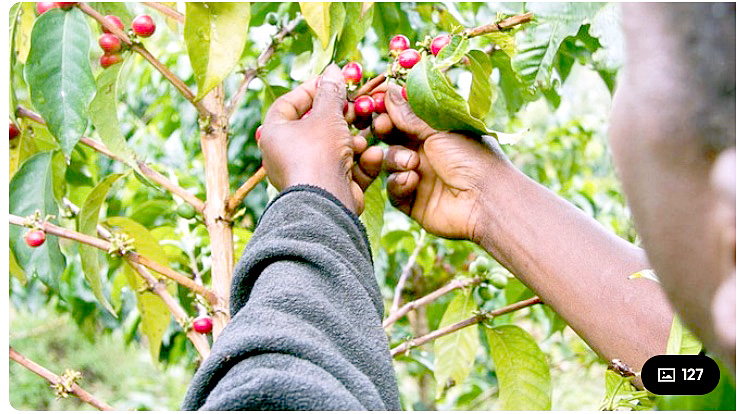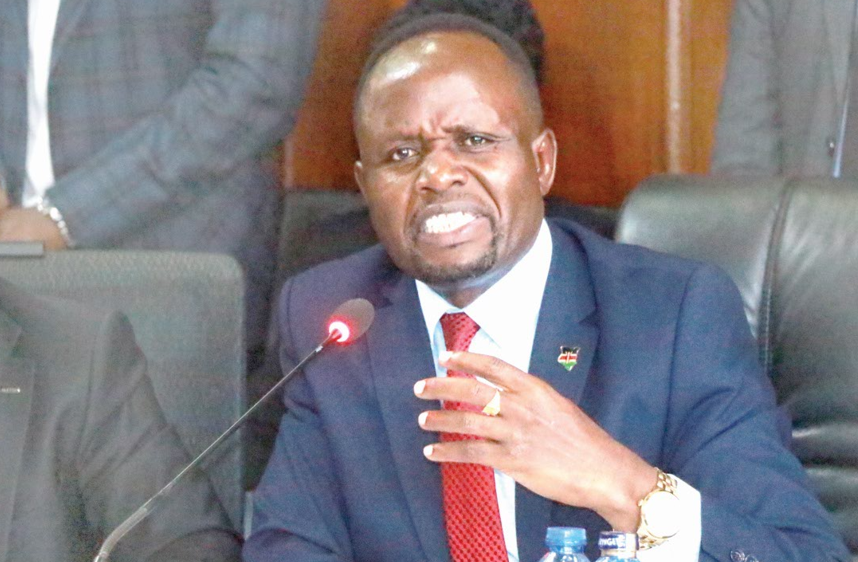Coffee farmers seek one-year extension on payment system

Coffee farmers are seeking a one-year extension on the implementation of the direct payment system to enable them skill up so as to effectively access digital payment solutions.
Through a letter directed to the Ministry of Co-operatives, Micro, Small and Medium Enterprises (MSME) Development Cabinet secretary, Wycliff Oparanya stated that as much as they welcome the move which seeks to enhance transparency, they still need more time to get financial literacy, open up bank accounts as some of the members are in the remotest areas in the country.
“A significant number of farmers, particularly in rural and marginalised areas, do not yet have bank or Sacco accounts. It is imperative that our smallholders, who have long been affiliated with the Saccos, be encouraged to have their pay points at Saccos of their choice, to ensure that we safeguard our cooperative ecosystem and strengthen this critical sector that you lead,” the Union Chairman Francis Ngone said in the letter.
Additionally, he argued that many cooperatives are yet to complete the critical process of cleaning and verifying farmer records, such as Identification documents, and bank details for those who possess, among other critical contact details.
On top of these, he put emphasis on the fact that the farmers still have the challenge of currency conversion and that some farmers still owe the societies and the Saccos money which had been extended to them inform of loans.
“Despite our numerous enquiries in regard to the practicability of making small payments to farmers after every other auction and also the applicable competitive exchange rate, we have not been explained or given any assurance. This is one of the reasons we seek more stakeholder engagement to agree on how to handle these issues of concern,” he noted.
Ngone added, “Currently, farmers owe societies and Saccos, while societies and unions have debt obligations to Saccos and other financial institutions. If the directive is effected in July 2025, the sector risks sitting on high non-performing debt unless the anticipated coffee debt write-off is guaranteed and effected.”
Coffee trading chain
Furthermore, they have expressed concerns over the introduction of new levies in the coffee trading chain, which are now being apportioned as 1 per cent for coffee brokers, 0.2 per cent for Capital Markets Authority (CMA), 0.3 per cent for Nairobi Coffee Exchange (NCE) and 0.3 per cent for Direct Settlement System (DSS).
Initially, according to the farmers, coffee brokers charged a flat fee of 1.8 per cent, which now appears to have been redistributed among multiple institutions, a factor which they are seeking clarity on.
“Coffee Unions now own brokerage companies, and they will be impacted by a reduction of 0.8 per cent. It is not clear how the brokers will be compensated for this loss. The re-distribution model needs to appreciate the role of each service provider and compensate them fairly,” the chairman added.
Ngone noted that there has been insufficient consultation and clarity on how the funds collected by these institutions directly benefit the farmer, now seeking to understand whether there can be a win-win situation without minimising the role of each stakeholder.
If granted the extension of the implementation to June next year, they are confident that these concerns will be adequately addressed and that members will also have streamlined their payment channels.
The reforms were implemented by the government last year to boost the farmers’ earnings and to encourage the production of more coffee in a bid to meet new demands from new foreign markets, particularly in Asian countries such as China, which recently signed several trade agreements with Kenya.
Through the direct payment option to farmers’ individual accounts that the ministry directed mid-last month, farmers were to get seamless and fast payment on their supplied products through the Direct Settlement System (DSS), which eliminates the manipulation by middlemen.
The middlemen have been termed in numerous reports, including the recent Central Bank of Kenya (CBK) agriculture survey, as one of the leading contributors to decreased income levels by both farmers and retailers.













